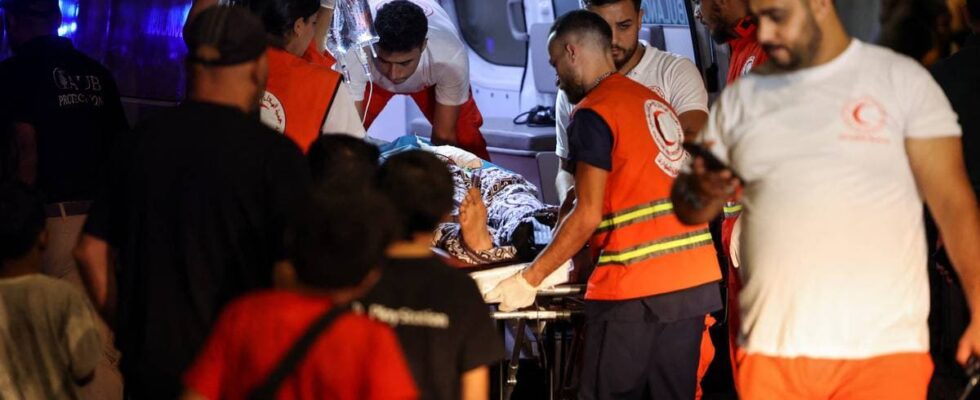People in Lebanon have been asked to donate blood. The hospitals in the country are overwhelmed with patients, writes Politico. The reason is an attack the likes of which has not been seen in history: in the course of one hour on Tuesday afternoon, thousands of pagers belonging to Hezbollah members went off the air. Nearly 2,750 people were injured, Reuters reports late Tuesday evening. Nine deaths have been reported, including several children. It is currently unclear why the pagers exploded: – There are three theories. One is a cyber attack. The second is that the batteries have been manipulated so that they have exploded. The third is that explosives have been planted in the new pagers that Hezbollah has just received from Iran, says Per Erik Solli to news. Per Erik Solli thinks a small explosive charge may have been put into the pagers. Photo: Andreas Trygstad He is a military adviser at the Norwegian Foreign Policy Institute (Nupi) and a retired colonel from the Air Force. He himself believes that explosives are the most likely. Other experts hold a button on the battery theory. But even though Hezbollah has not yet concluded a cause, they are clear about who they believe is behind it: the arch-enemy Israel. Infiltrated communications network – Israel will undoubtedly face its just punishment for this sinful aggression, Hezbollah said in a statement, reported by NPR. Lebanon’s Ministry of Foreign Affairs calls it an “Israeli cyber attack” in a message to X. Israel has not yet claimed responsibility. news has asked the Israeli army to comment on the allegations. They have not yet responded to the inquiry. But ordinary Israelis also seem to assume that their state is behind it: – This inspires us in terms of the extent of Israel’s capabilities. All our enemies should fear what we can do, says computer engineer Yoav Tourgeman Levi to Reuters in Tel Aviv, Israel. Experts also agree: – This has all the characteristics that Israel is behind it, and that they have infiltrated Hezbollah’s telecommunications network. That’s what Lina Khatib, researcher at the Middle East and North Africa program at the British think tank Chatham House, writes in an e-mail to news. A Lebanese woman looks away as she donated blood at a Red Cross clinic in Sidon, Lebanon, on Tuesday. Photo: Mohammad Zaatari / AP At the end of July, Israel bombed a neighborhood in Lebanon’s capital, Beirut, killing, among other things, Hezbollah leader Fouad Shukur. Tuesday’s pager attack is yet another defeat for the group, Khatib believes: – This episode is further proof that Hezbollah is unable to secure itself in the face of Israel’s superior technology and intelligence. Problems with communication Khatib believes the attack could hit Hezbollah harder than an open military confrontation with Israel, she says. – Instead of a military action, which Hezbollah would be able to handle, this attack aims to weaken Hezbollah and limit their ability to maneuver against Israel. Also David Wood, senior researcher with a focus on Lebanon at the International Crisis Group, believes that it is “safe to assume that Israel is responsible” for the attack. And that it can have real consequences for Hezbollah: When the Gaza war broke out last year, it quickly became clear that Israel had a good overview of the Hezbollah members, says Wood. That explains why they switched from using mobile phones to pagers. David Wood at the International Crisis Group. Photo: International Crisis Group – This gives more uncertainty about how they can communicate in print. It will go beyond their military operations and how effective they can be, says Wood to news. He believes it also puts Hezbollah in a difficult dilemma. – Short-term setback Hezbollah probably feels strong pressure to respond, Wood believes. At the same time, they are probably not in the mood for war. – Hezbollah must weigh up how they can give a response that is strong enough to send Israel a clear message to deter more attacks. At the same time, it must not be so powerful that it triggers a full-scale war, says Wood. An ambulance was surrounded by people and security personnel near the American University of Beirut on Tuesday afternoon. Photo: ANWAR AMRO / AFP Nupi analyst Per Erik Solli also believes Hezbollah will respond. But maybe not at first. Tuesday’s attack has weakened the group too much: – This is a short-term setback for Hezbollah. But that does not mean that they cannot rise again and threaten Israel. He, too, is clear that Israel is behind it. Among other things, he points out that Israel has previously planted explosives in the mobile phones of Hamas members: – Hezbollah has one opponent and one enemy. It is difficult to see that there are others who can be behind this, says Solli. But what would Israel gain from the attack? Solli has some theories: – Hezbollah has long warned of an attack on Israel. It may have been that the Israeli intelligence picked up that such an operation was in progress and tried to stop it, says Solli. But he also points out that it was a huge scandal for Israel that they did not prevent the Hamas attack in Israel on 7 October last year: – It has been a disgrace to their intelligence. So this could be an attempt to restore trust and faith in their effectiveness. Published 17.09.2024, at 22.38 Updated 17.09.2024, at 22.38
ttn-69
– All the signs that Israel was behind it – news Urix – Foreign news and documentaries

